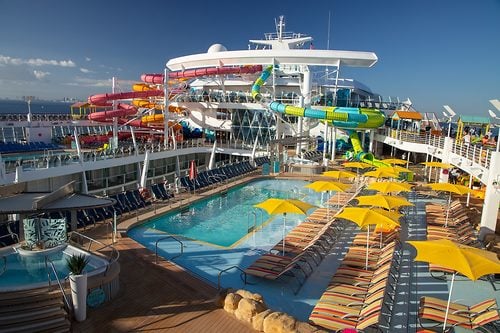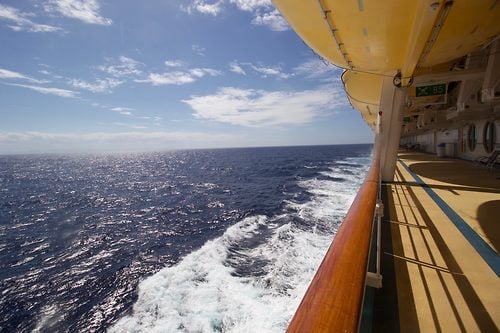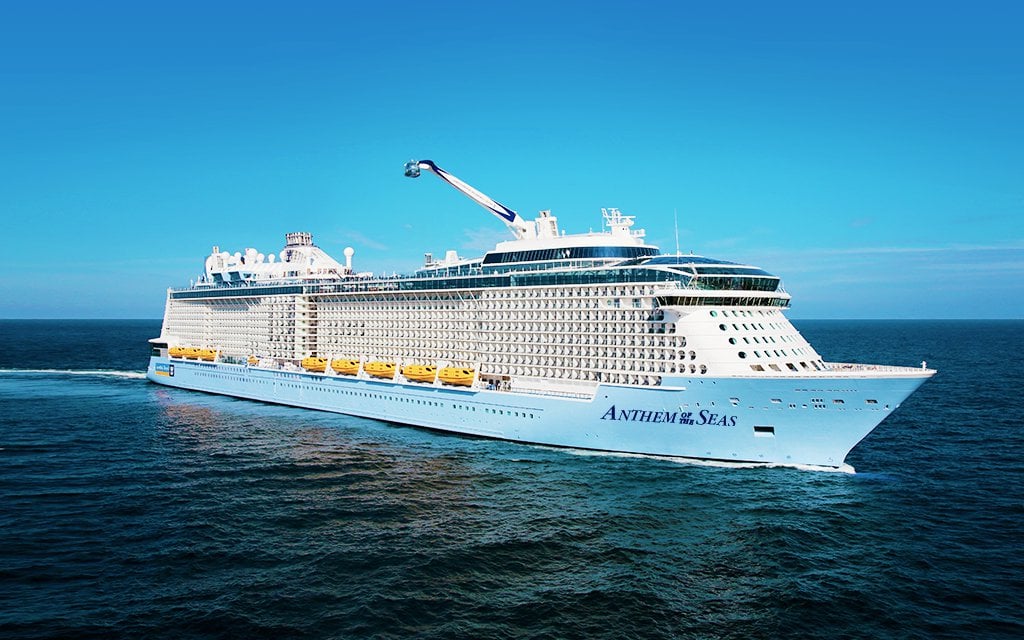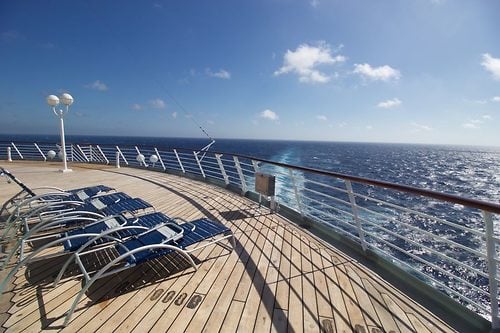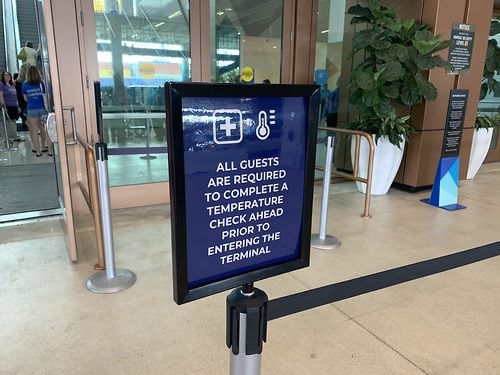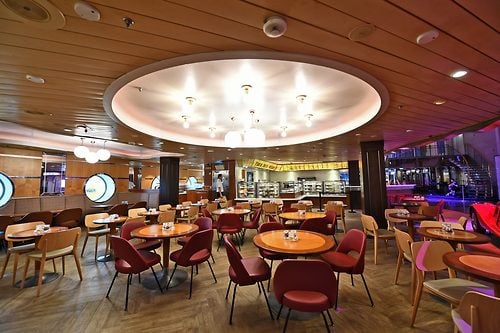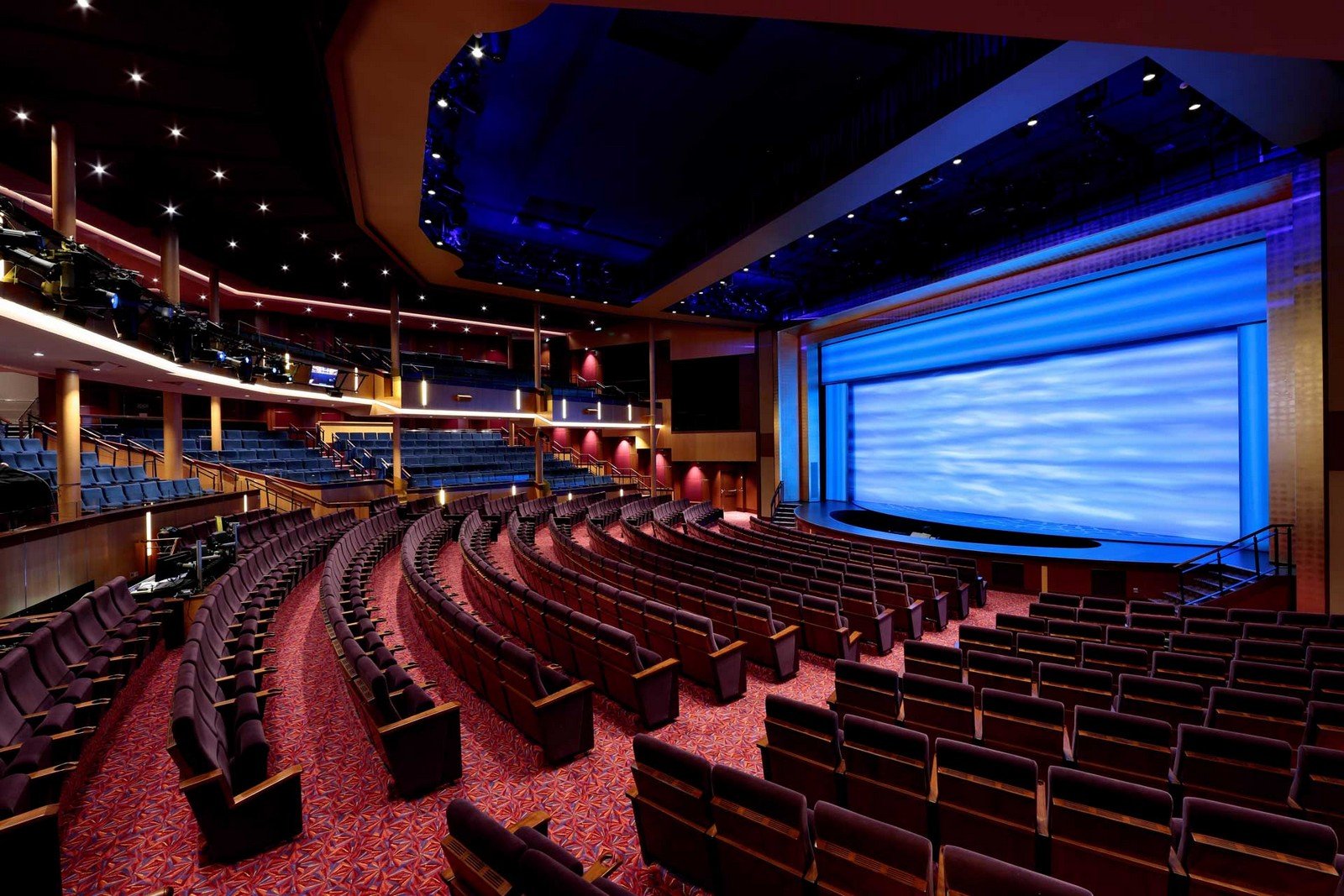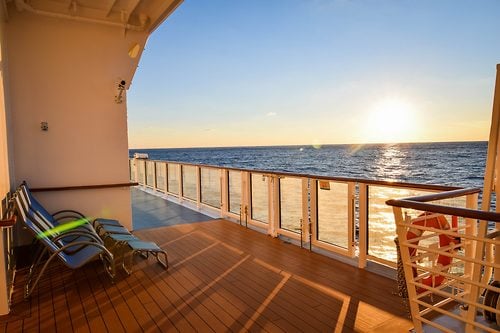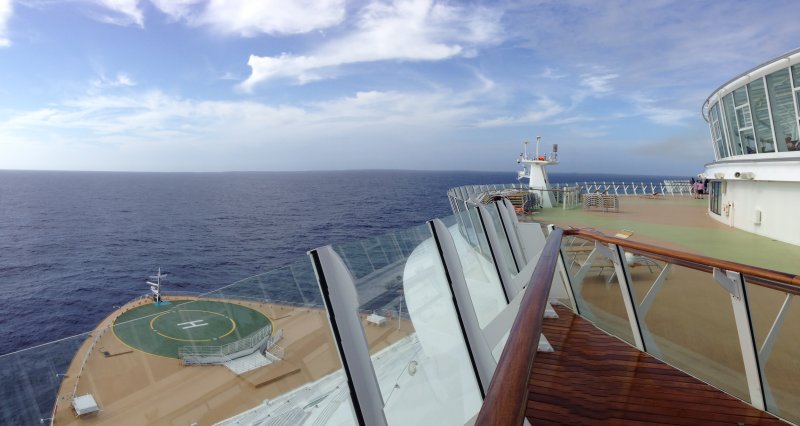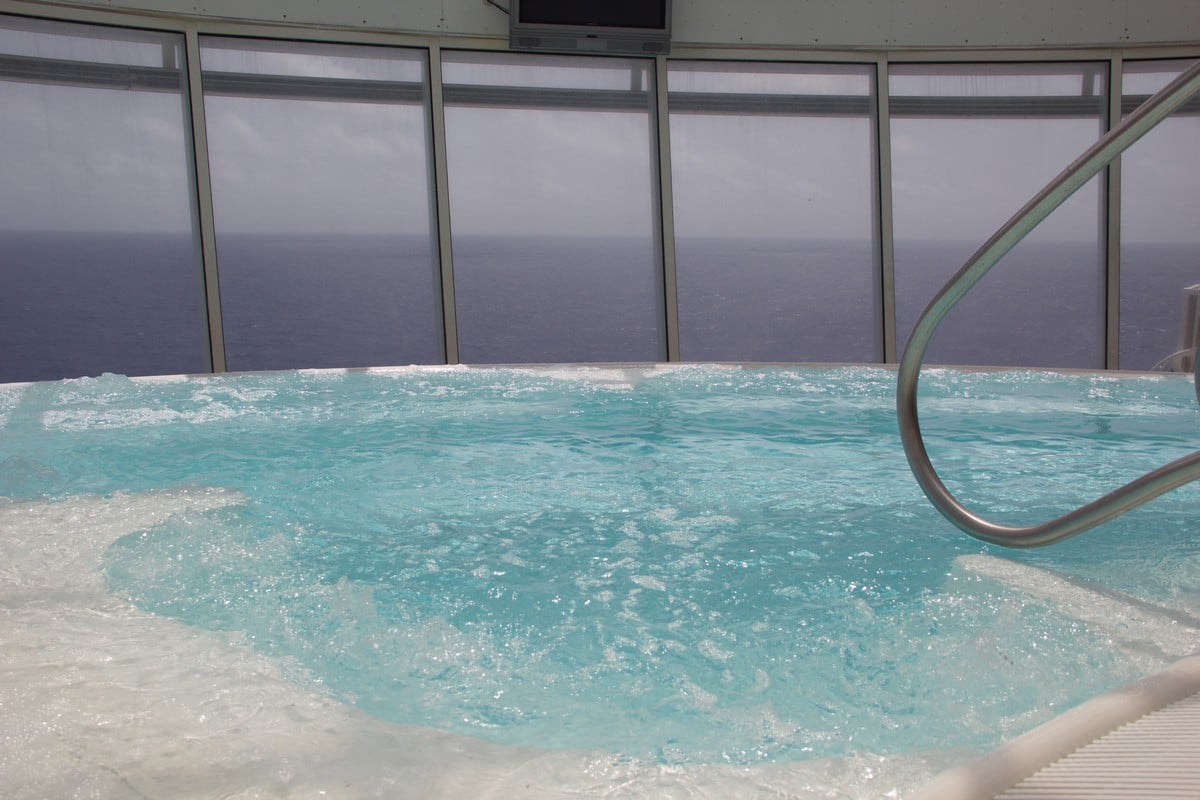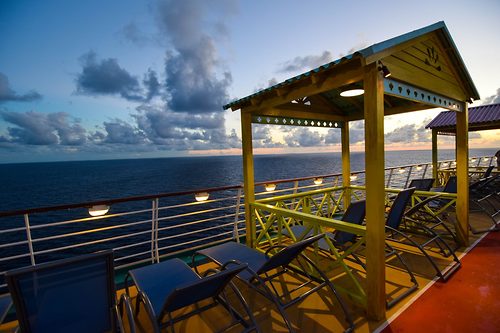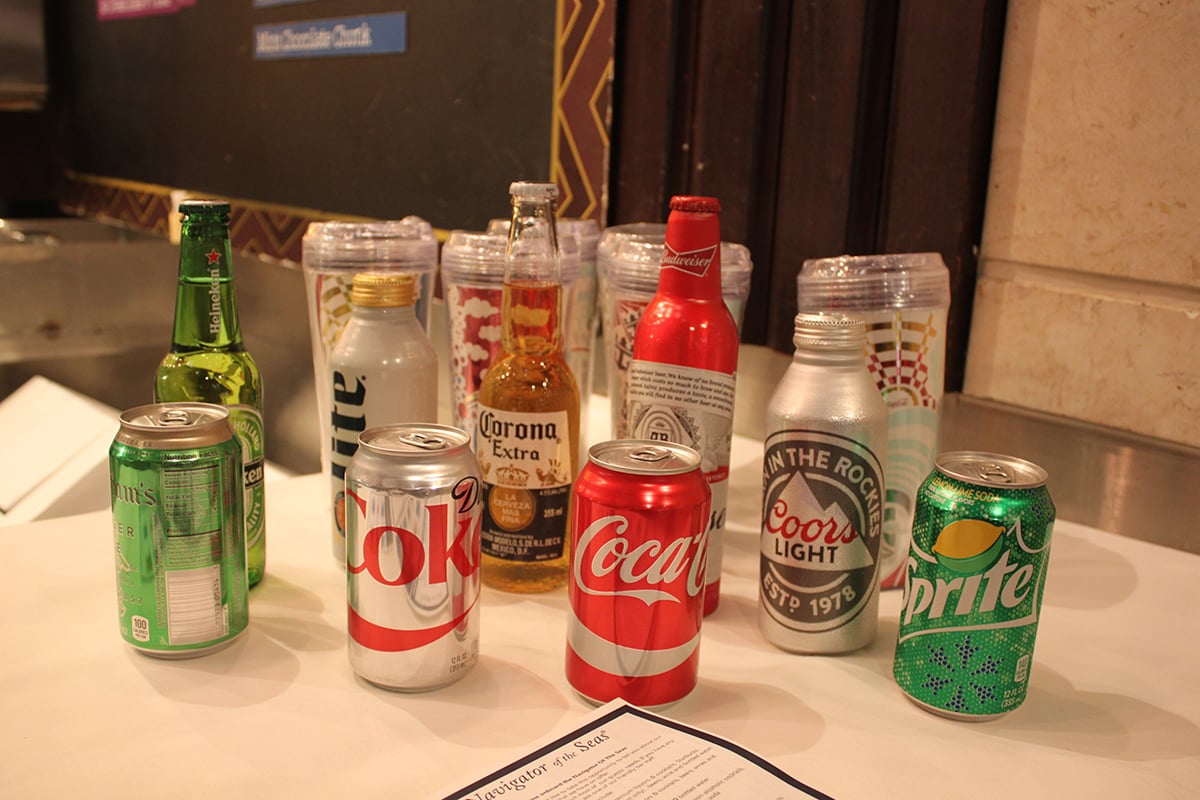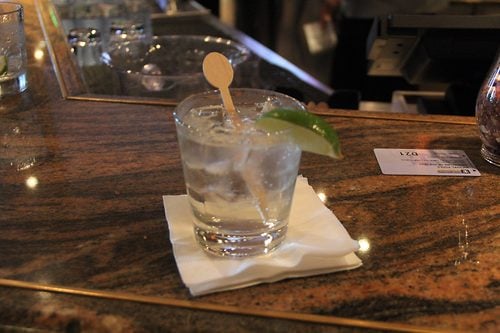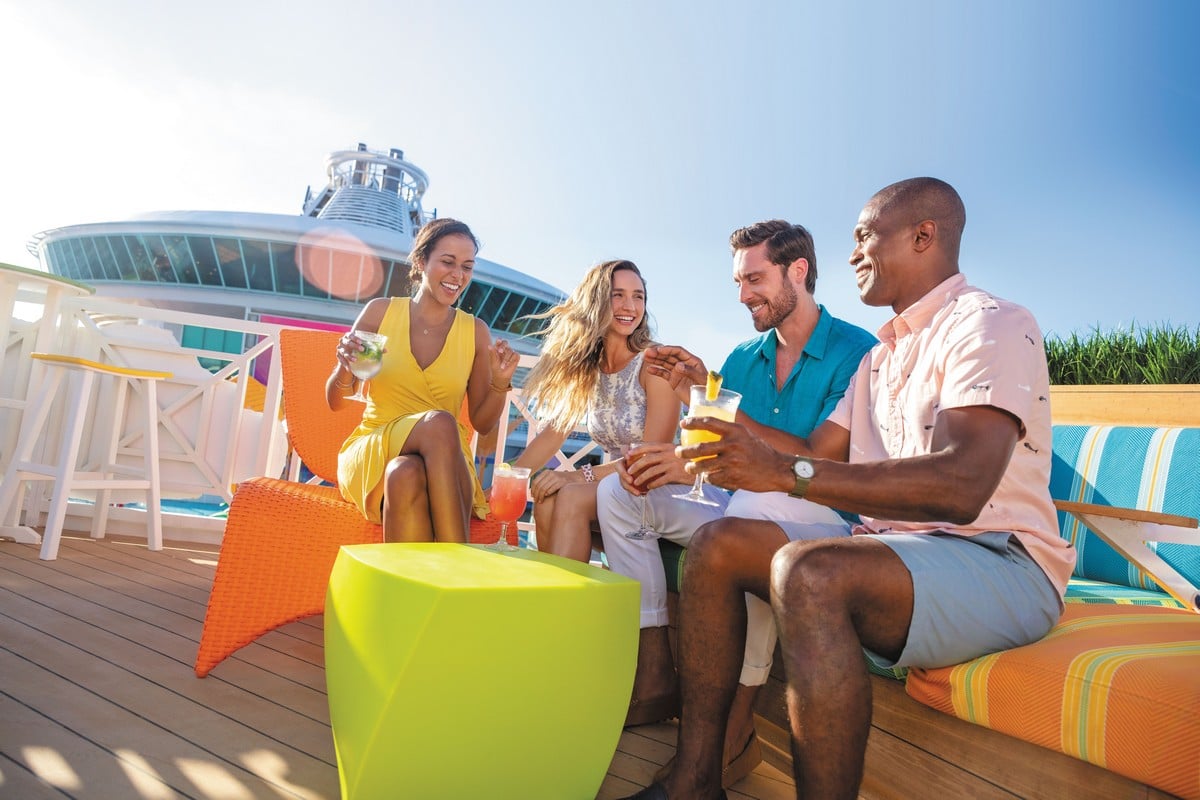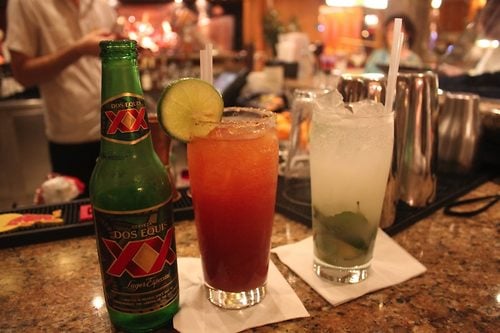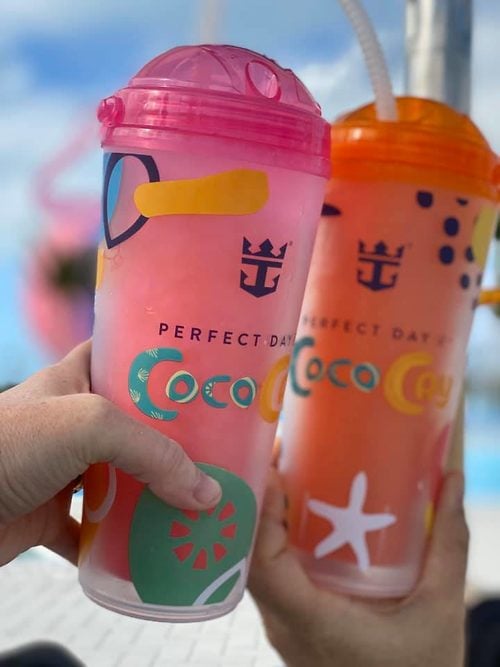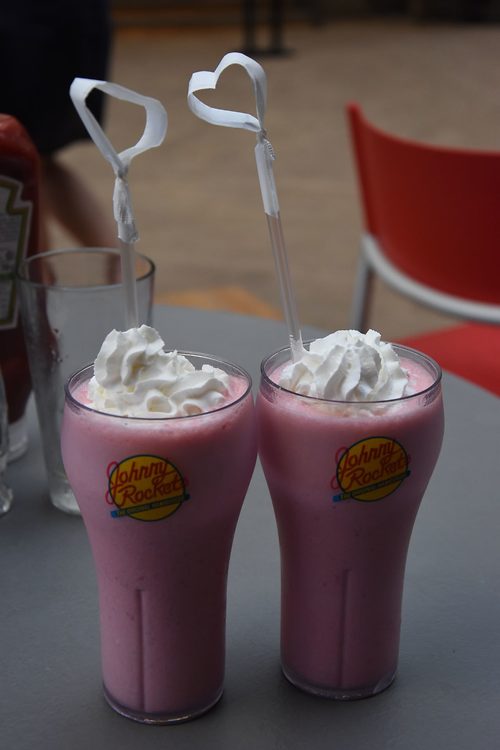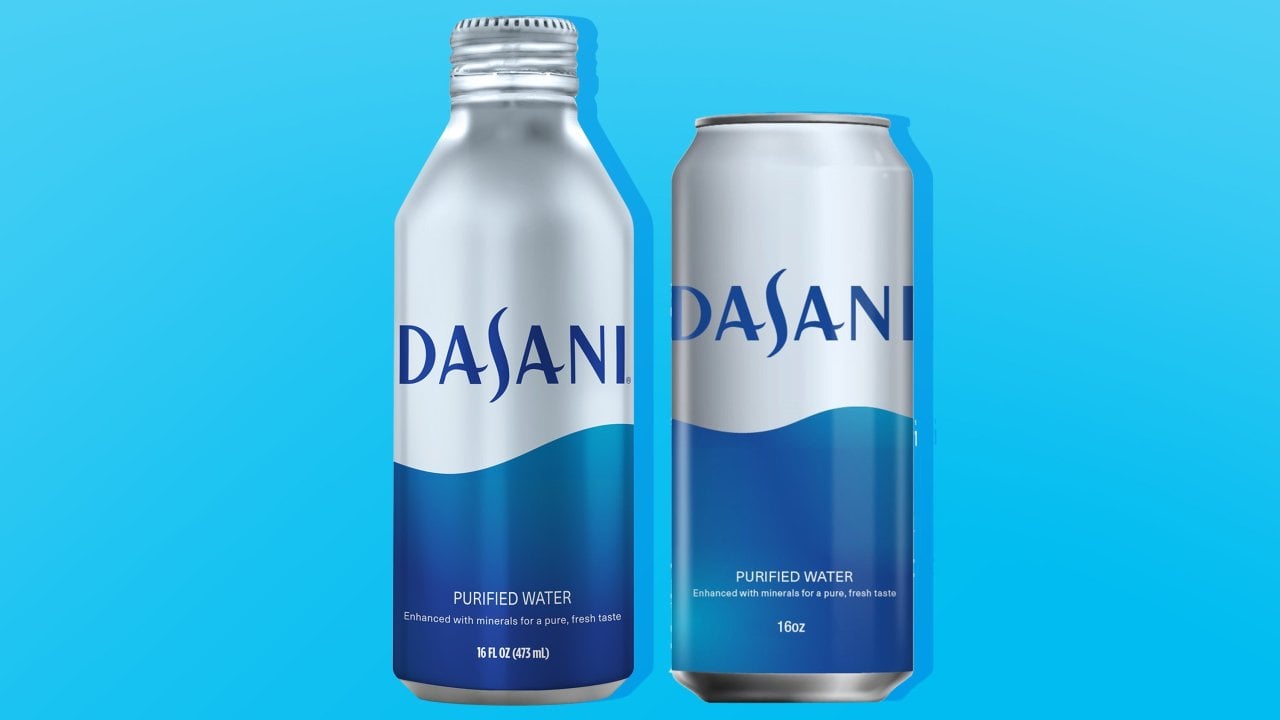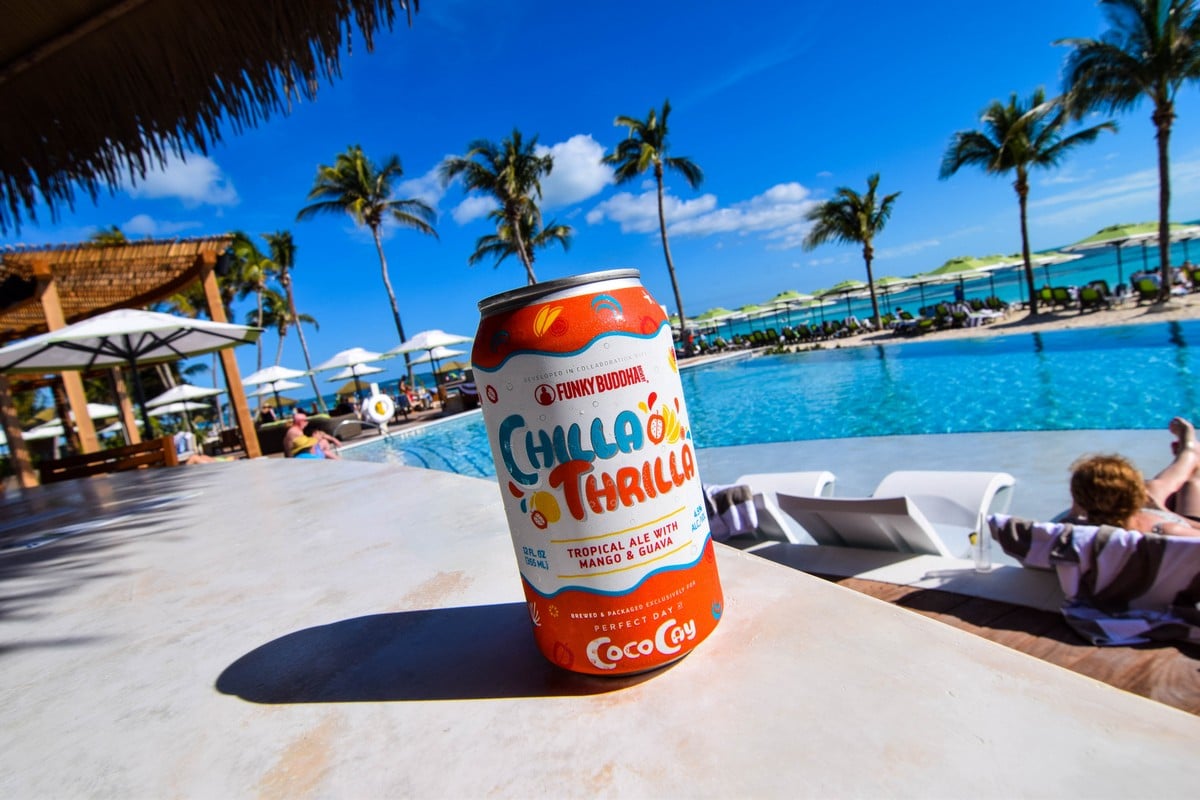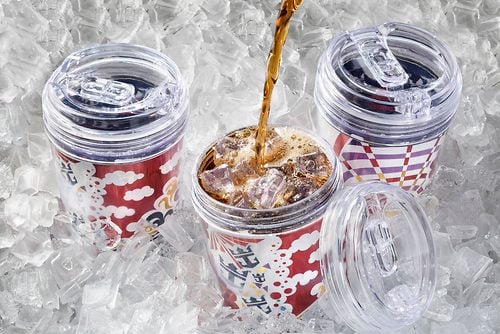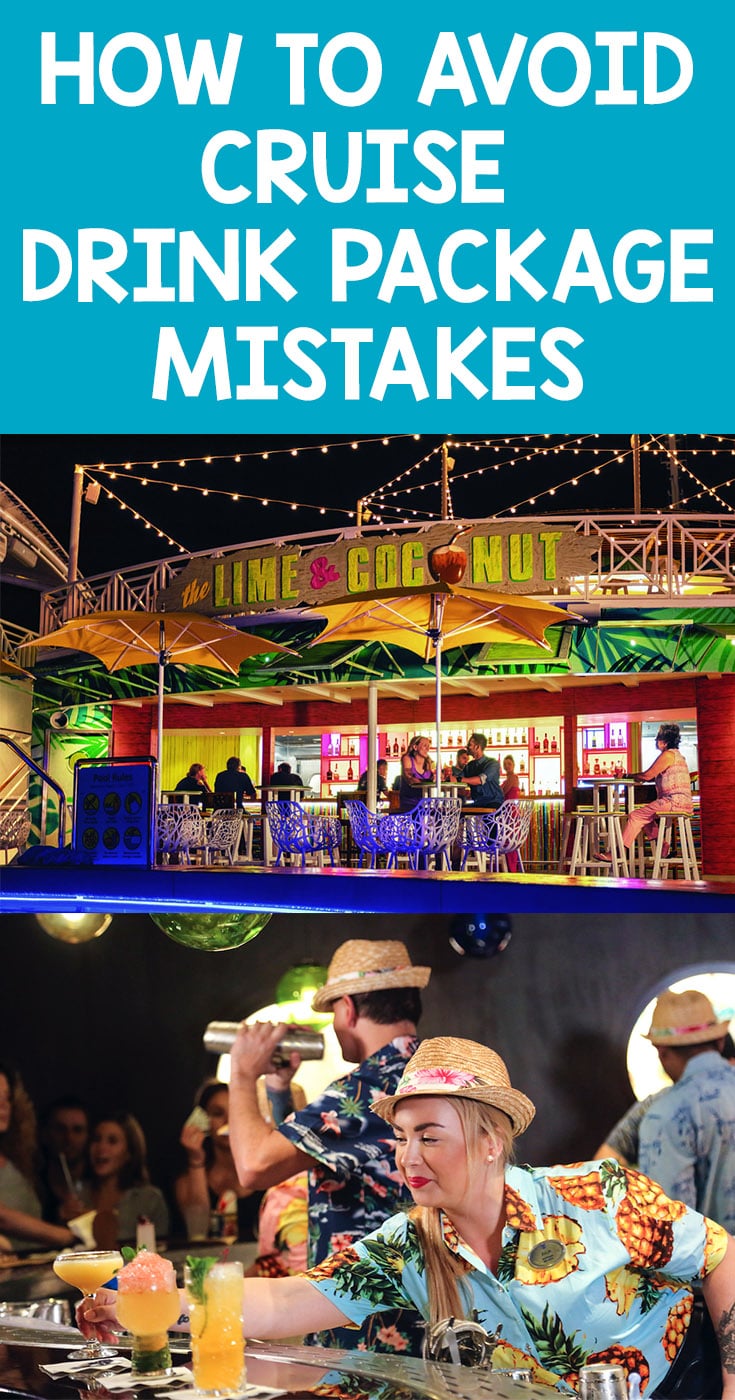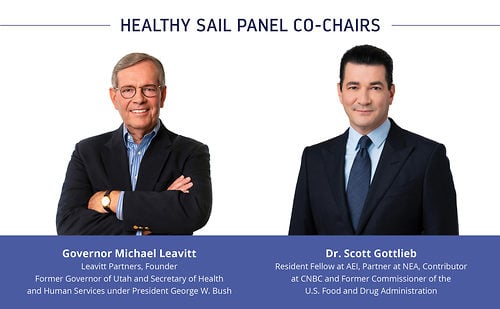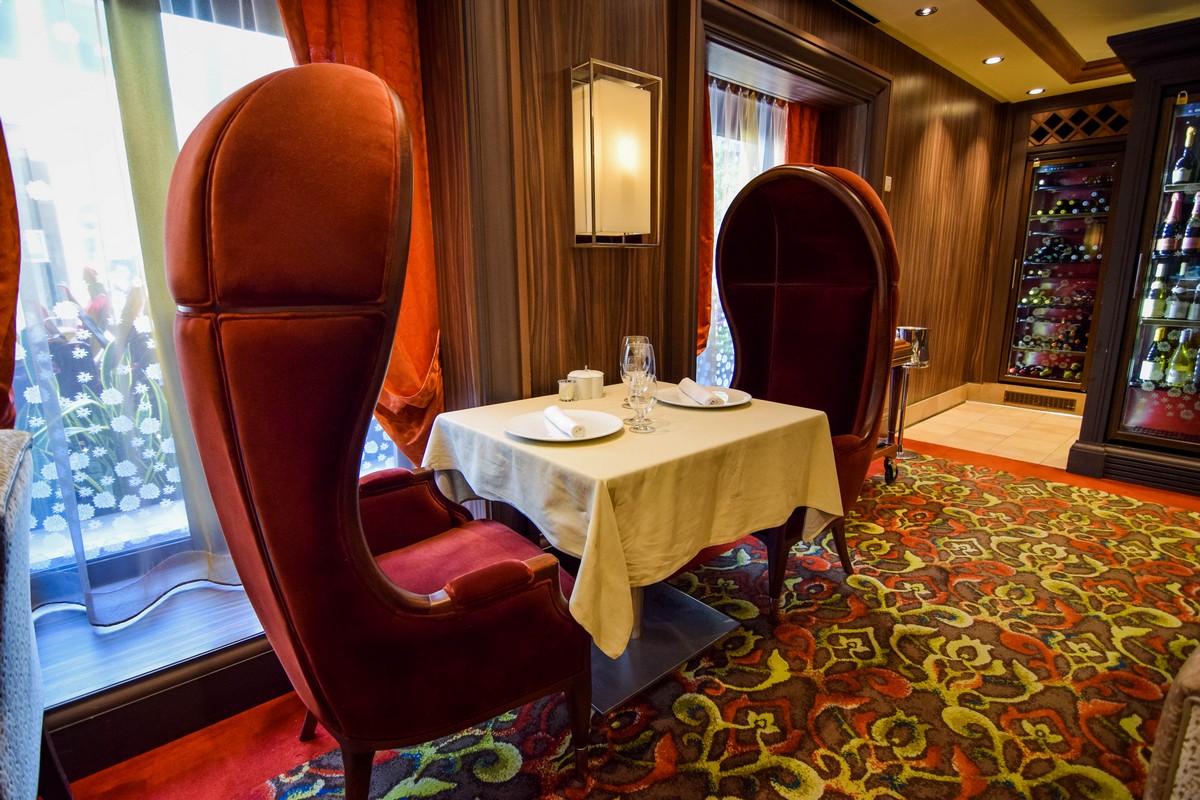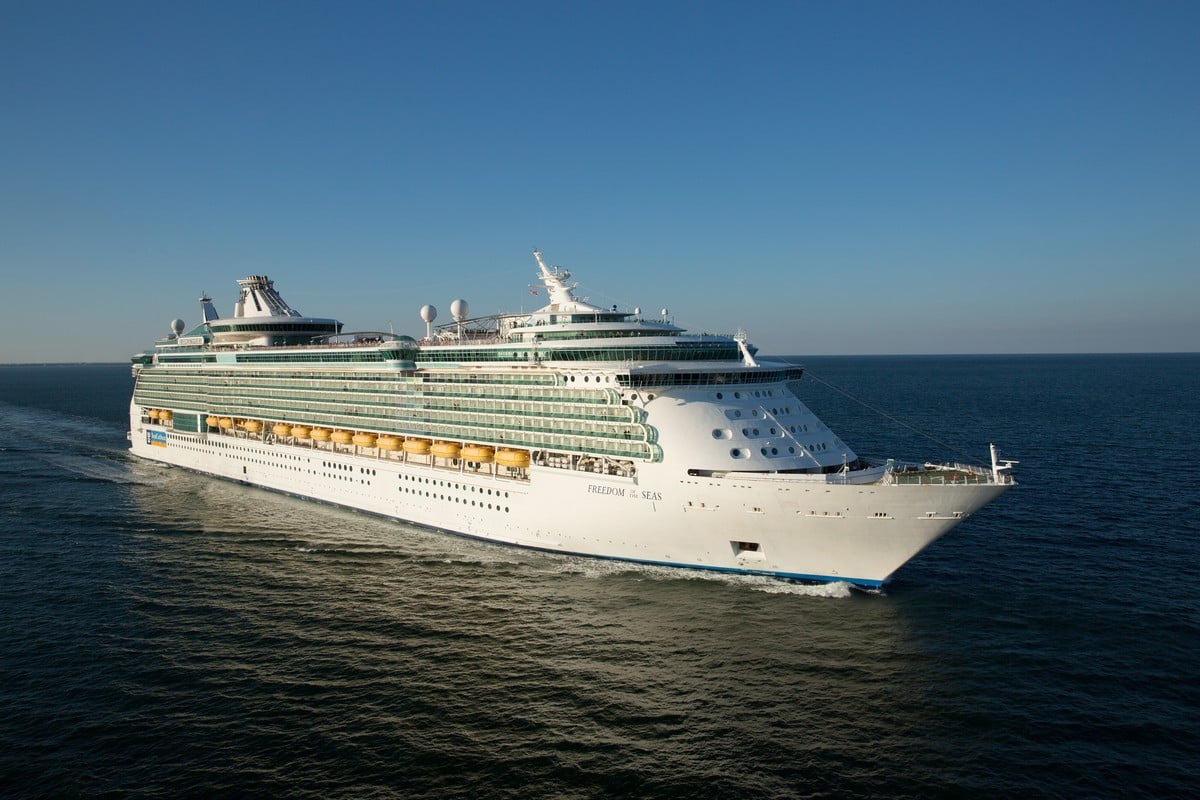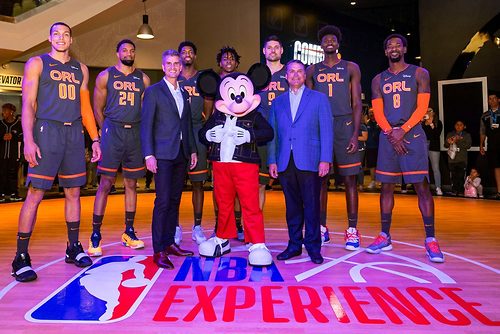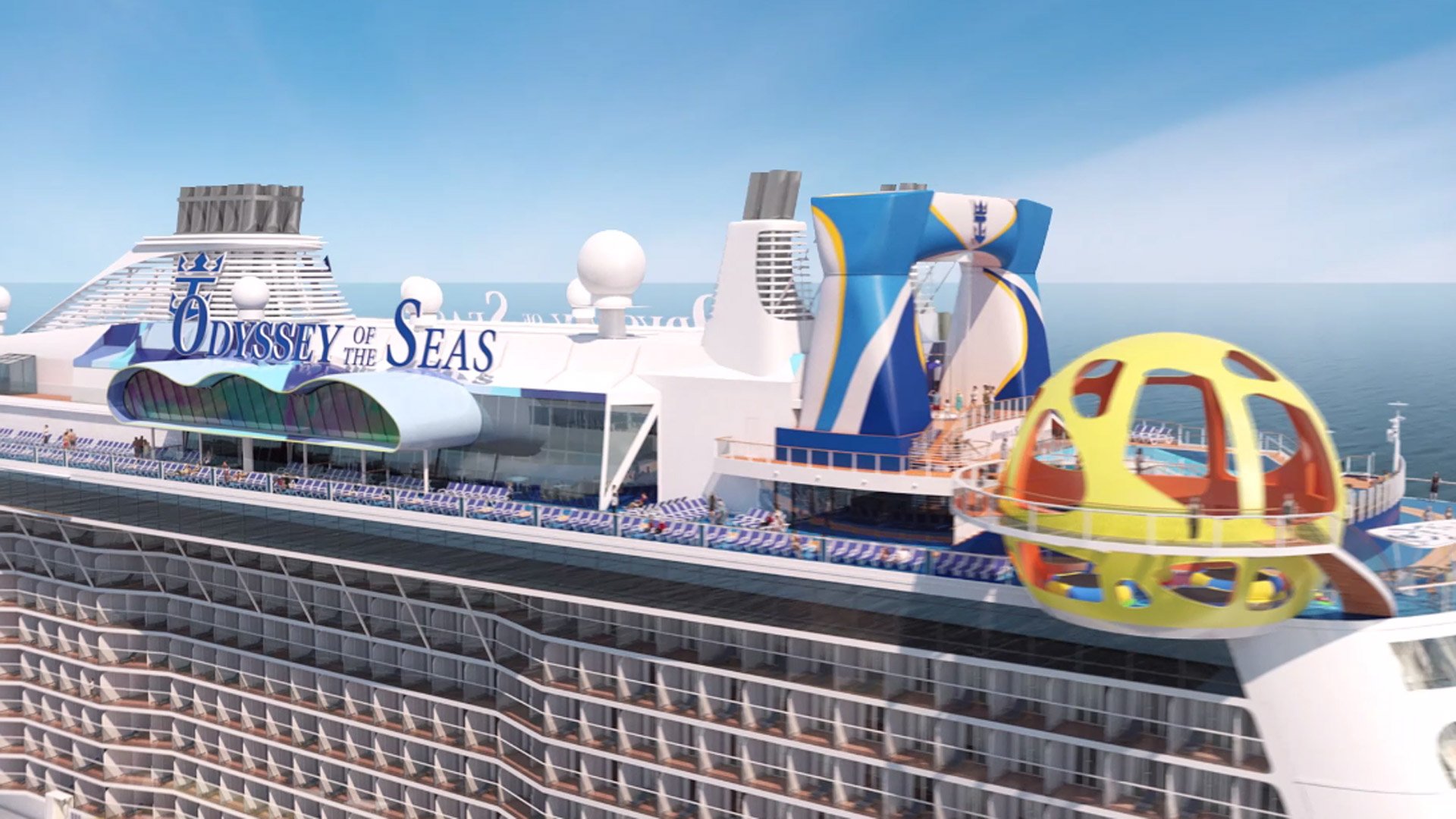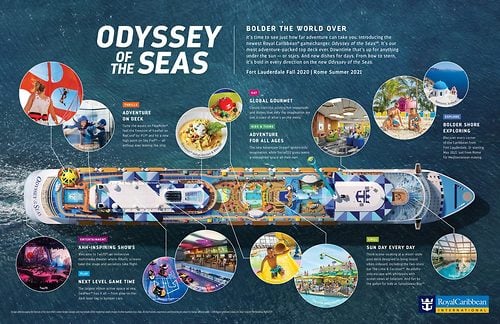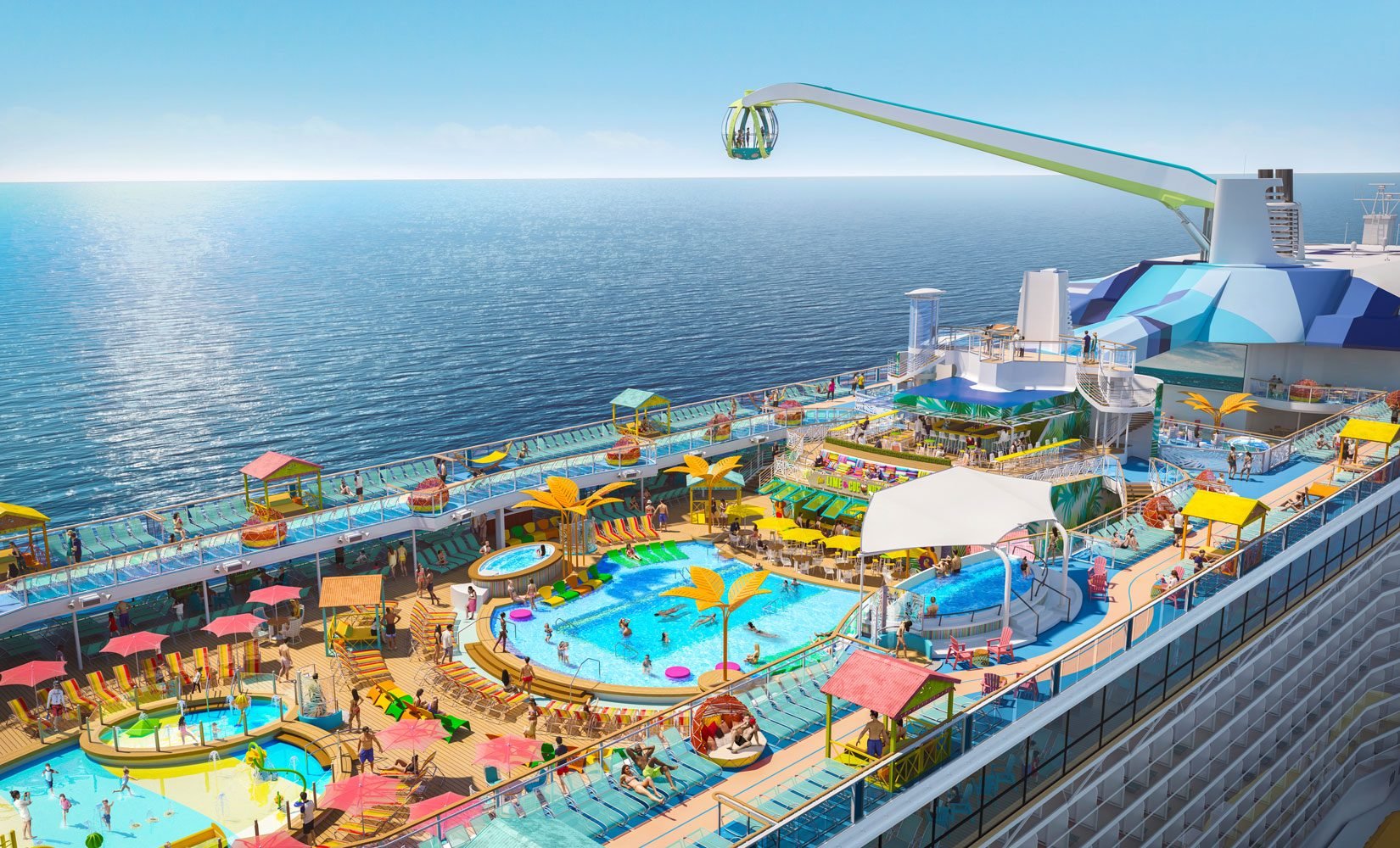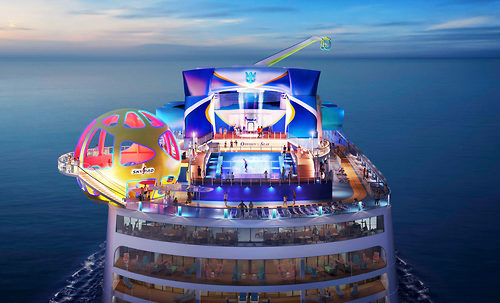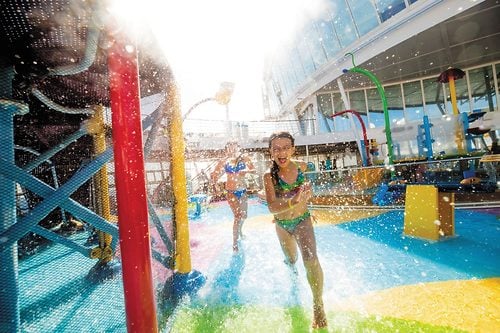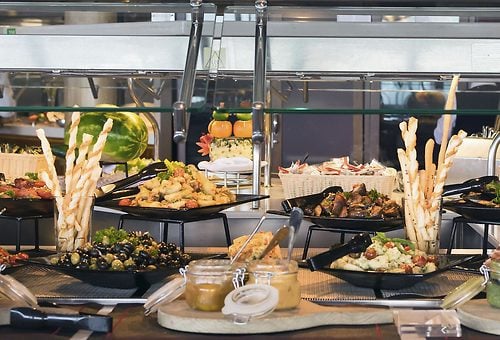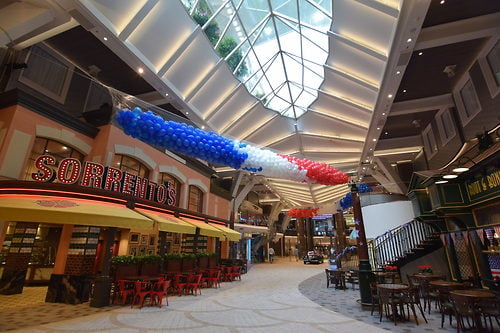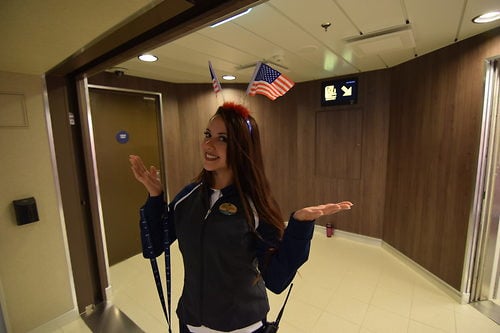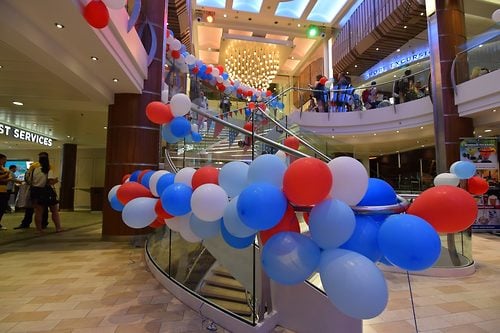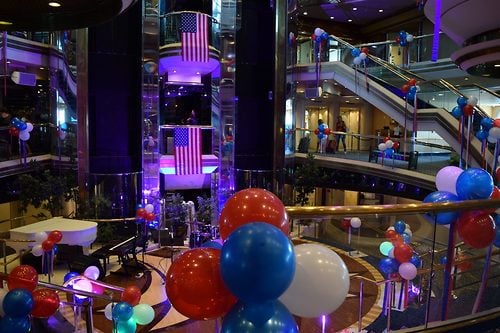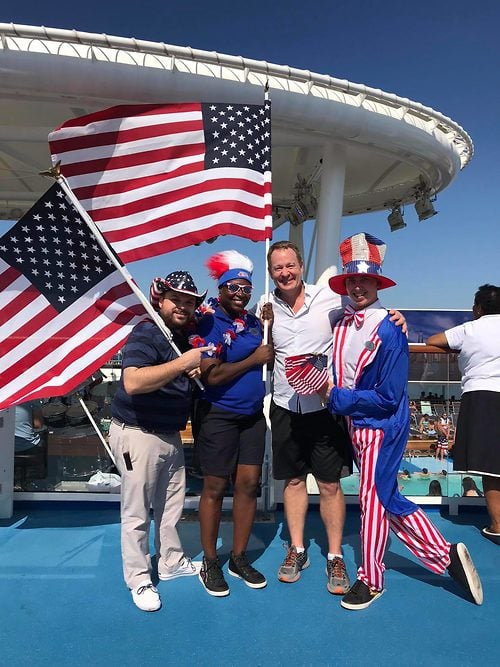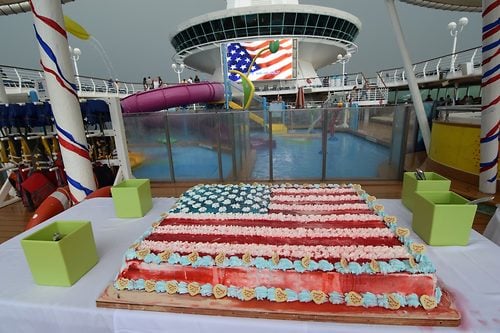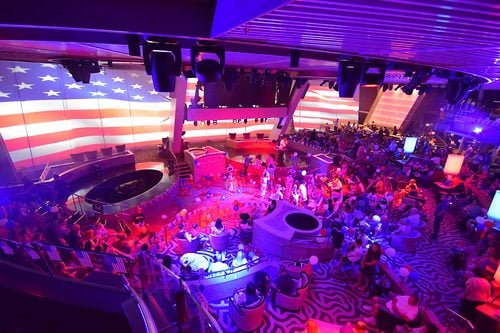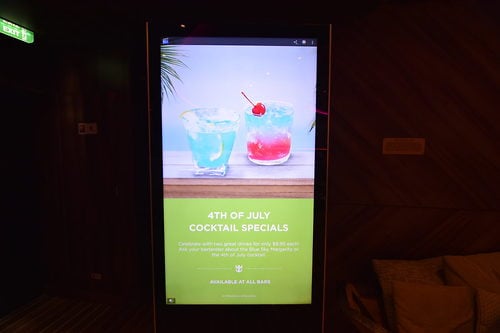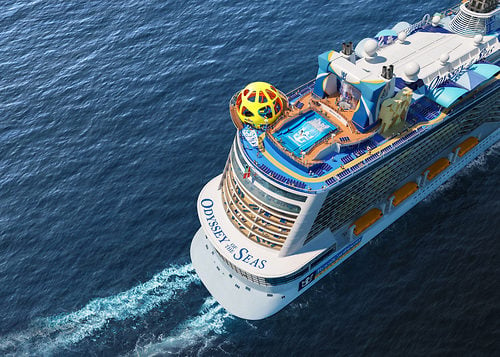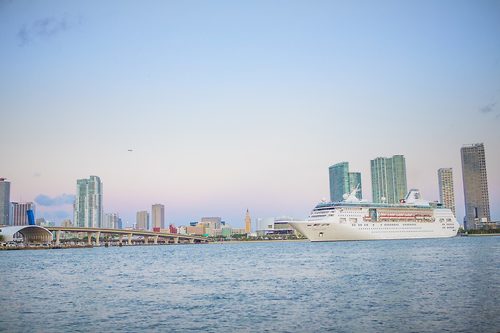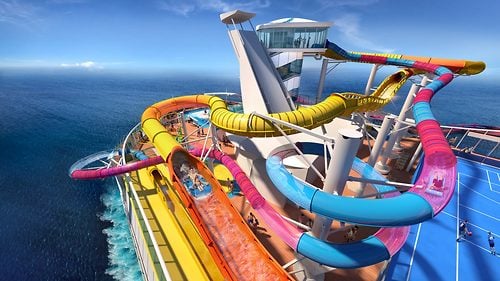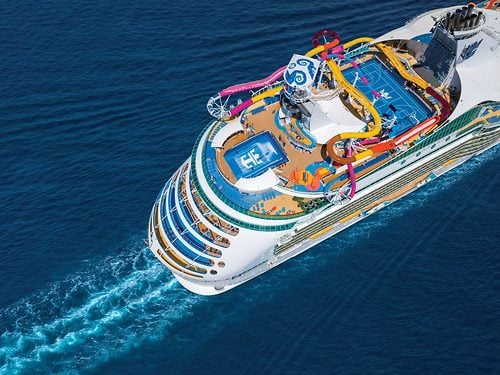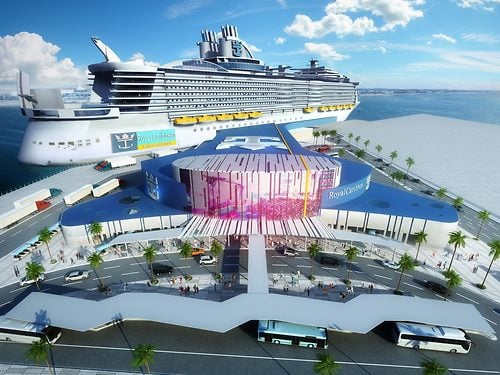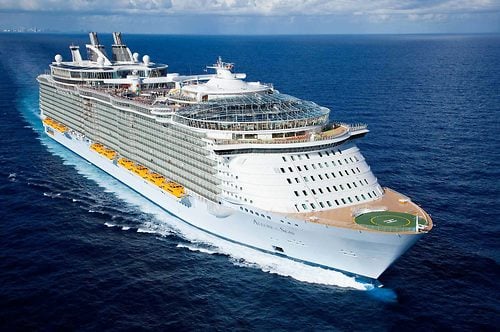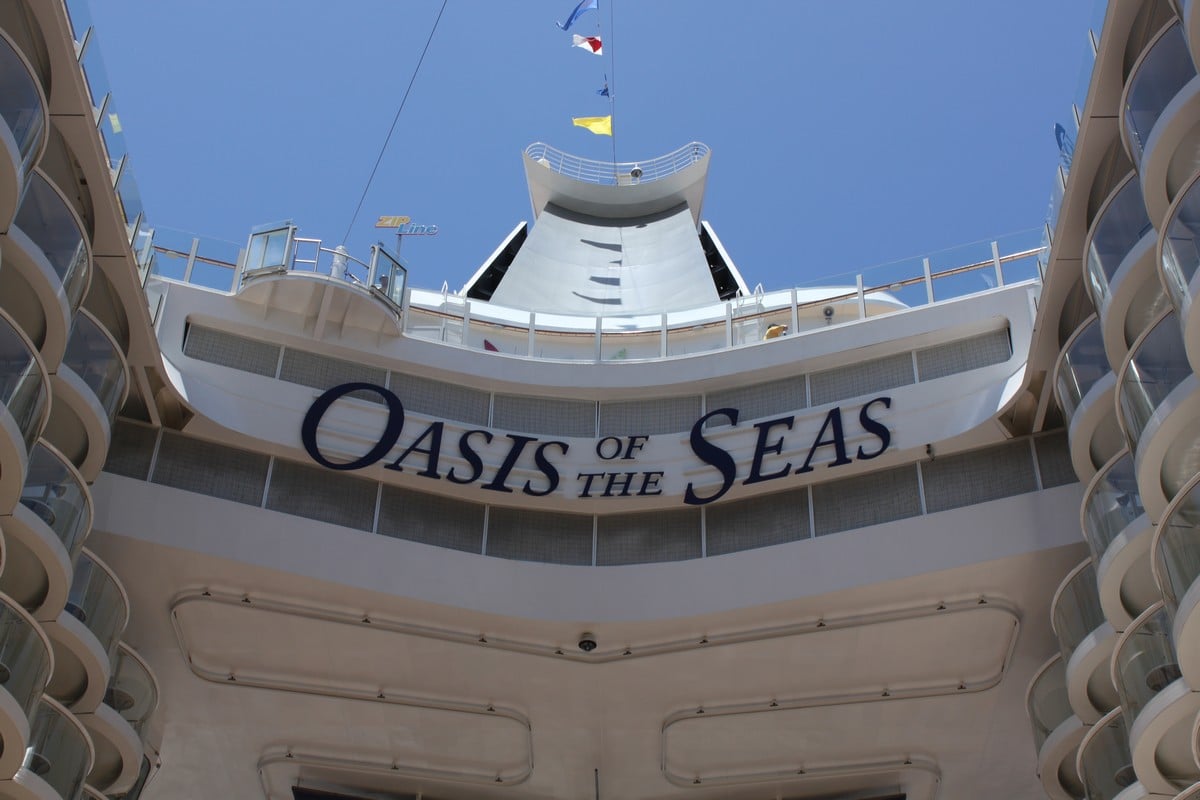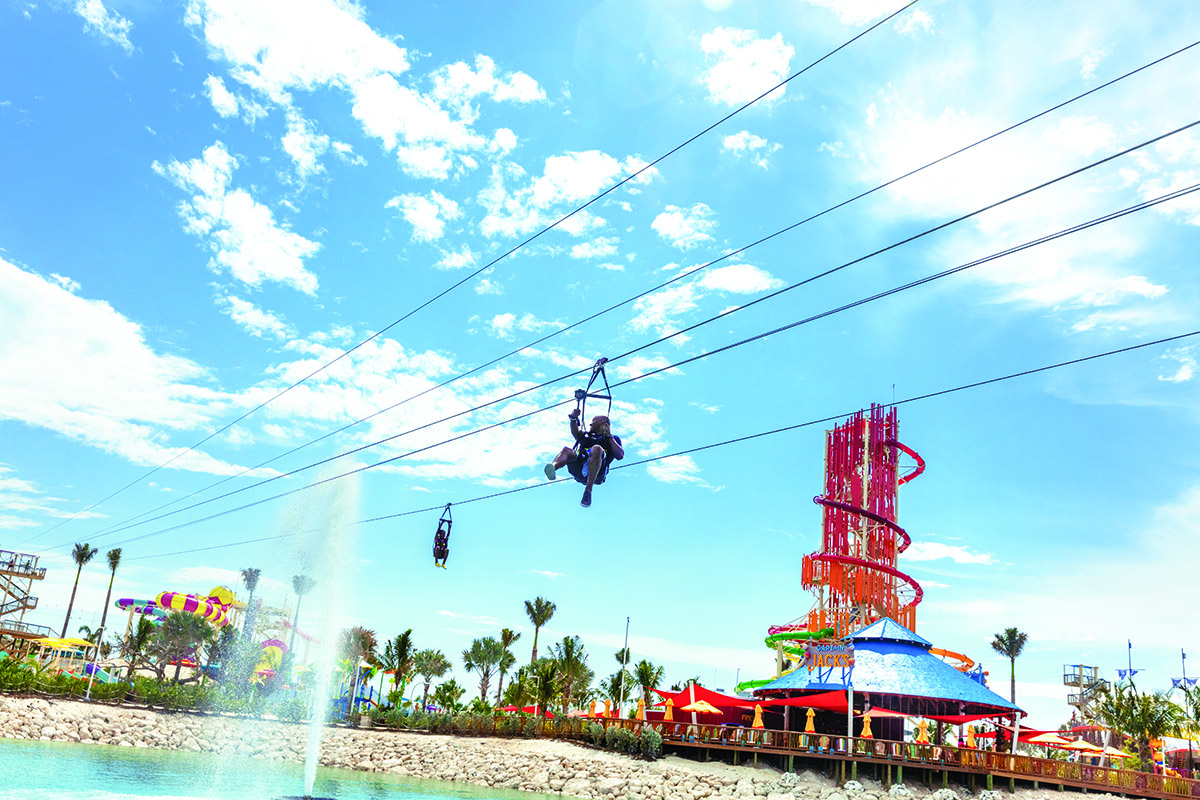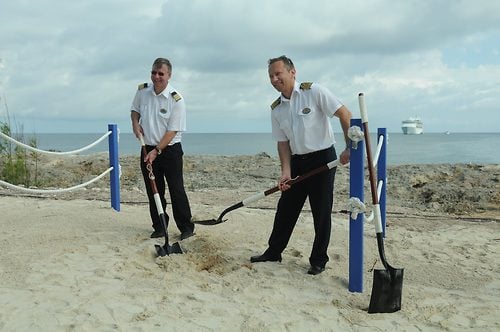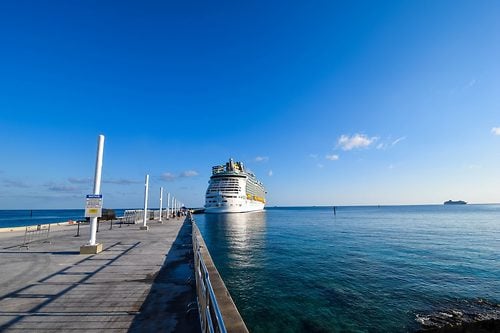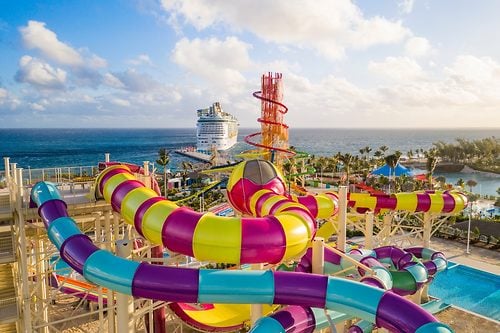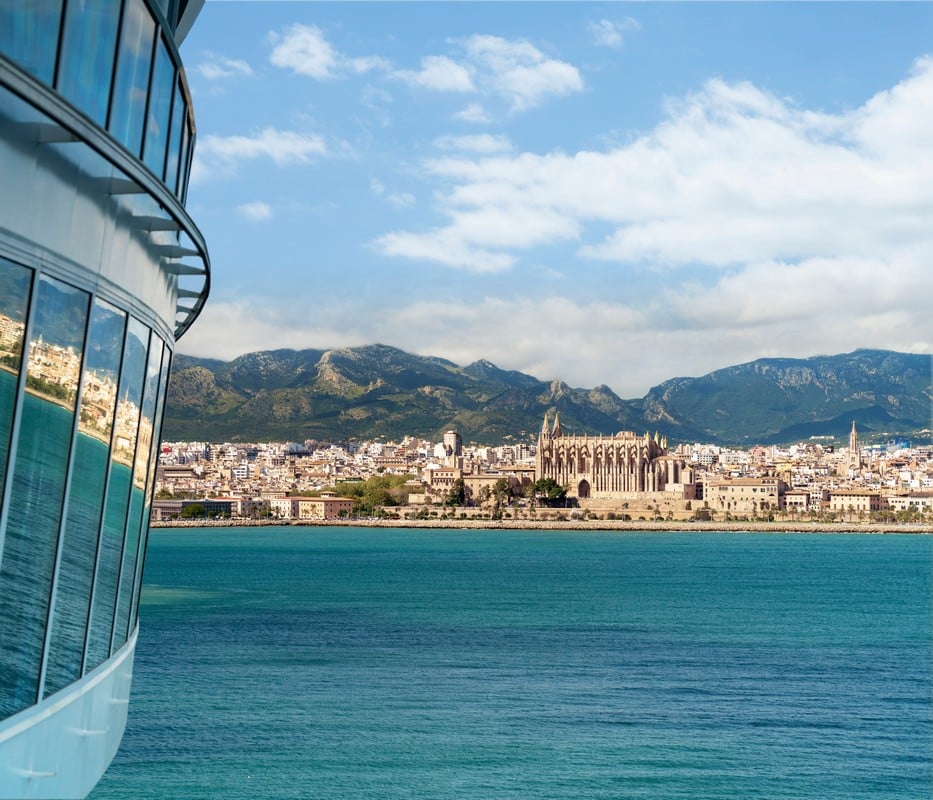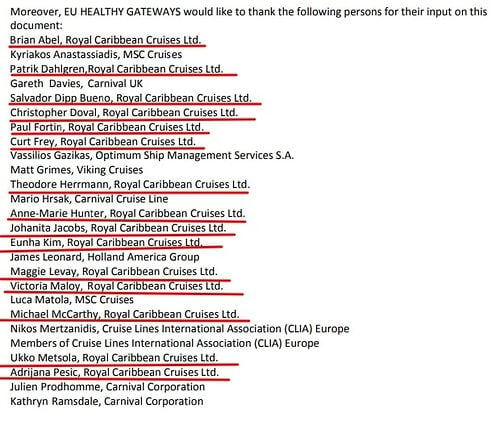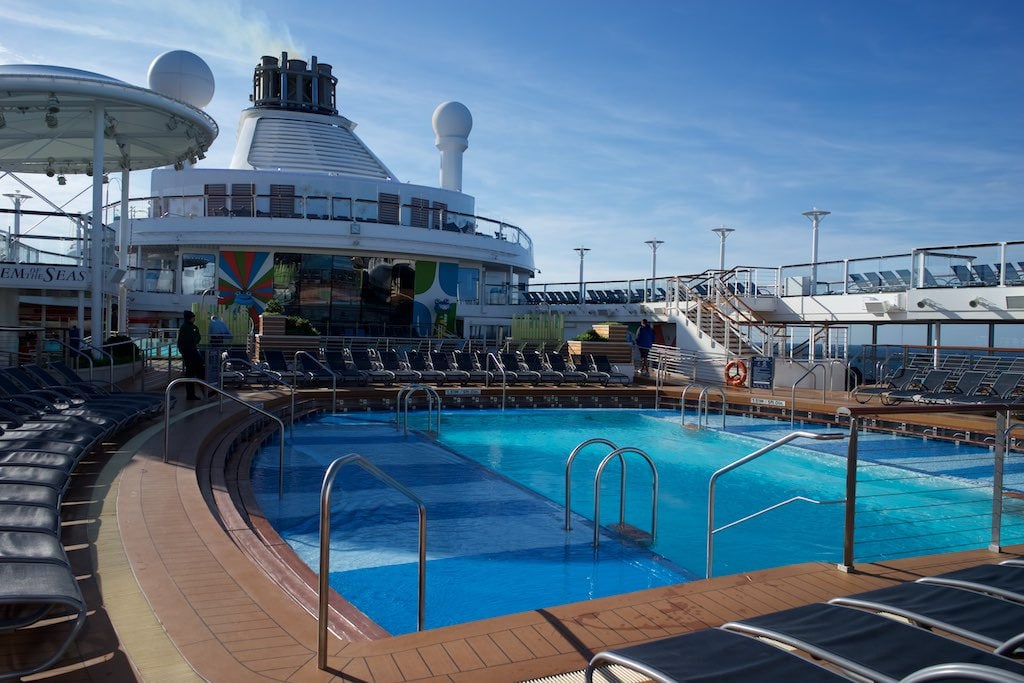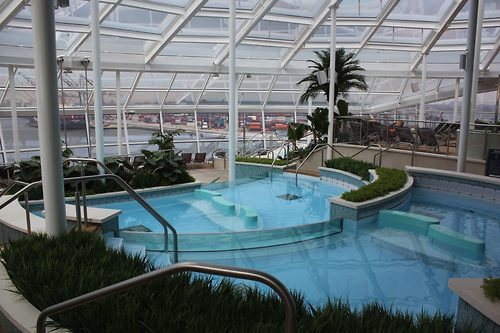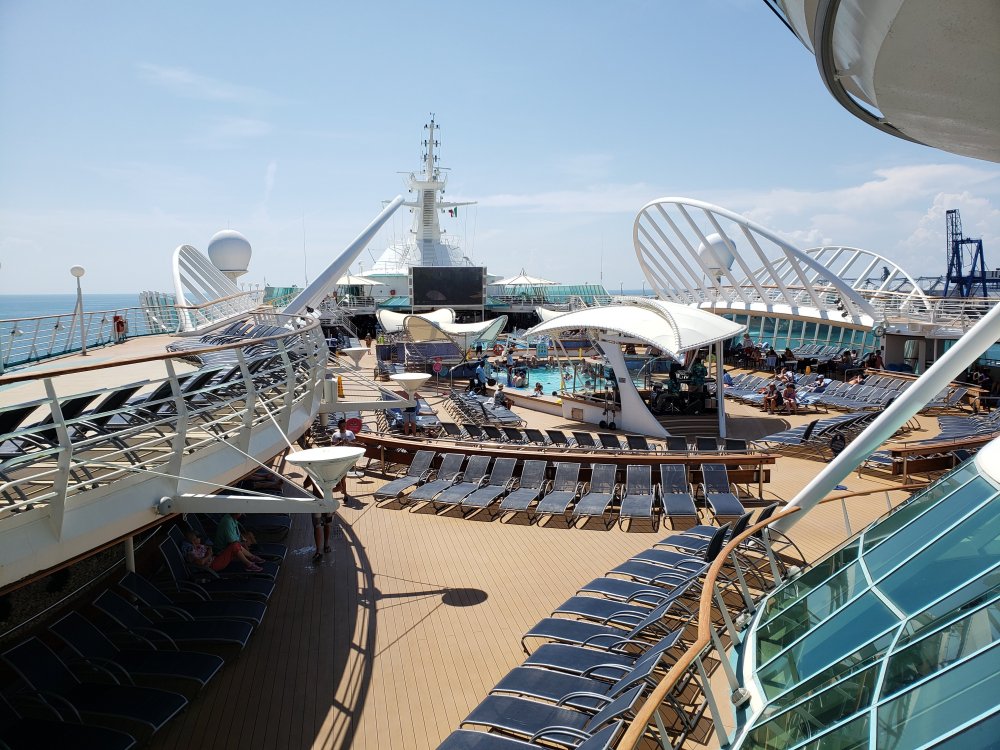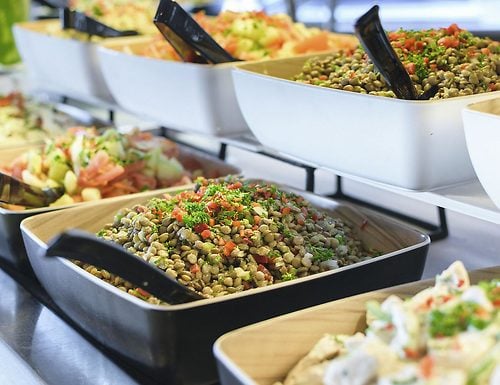Royal Caribbean Group announced on Monday a new collaboration with Norwegian Cruise Line Holdings to create a panel of health experts that will oversee development of enhanced cruise line health and safety protocols.
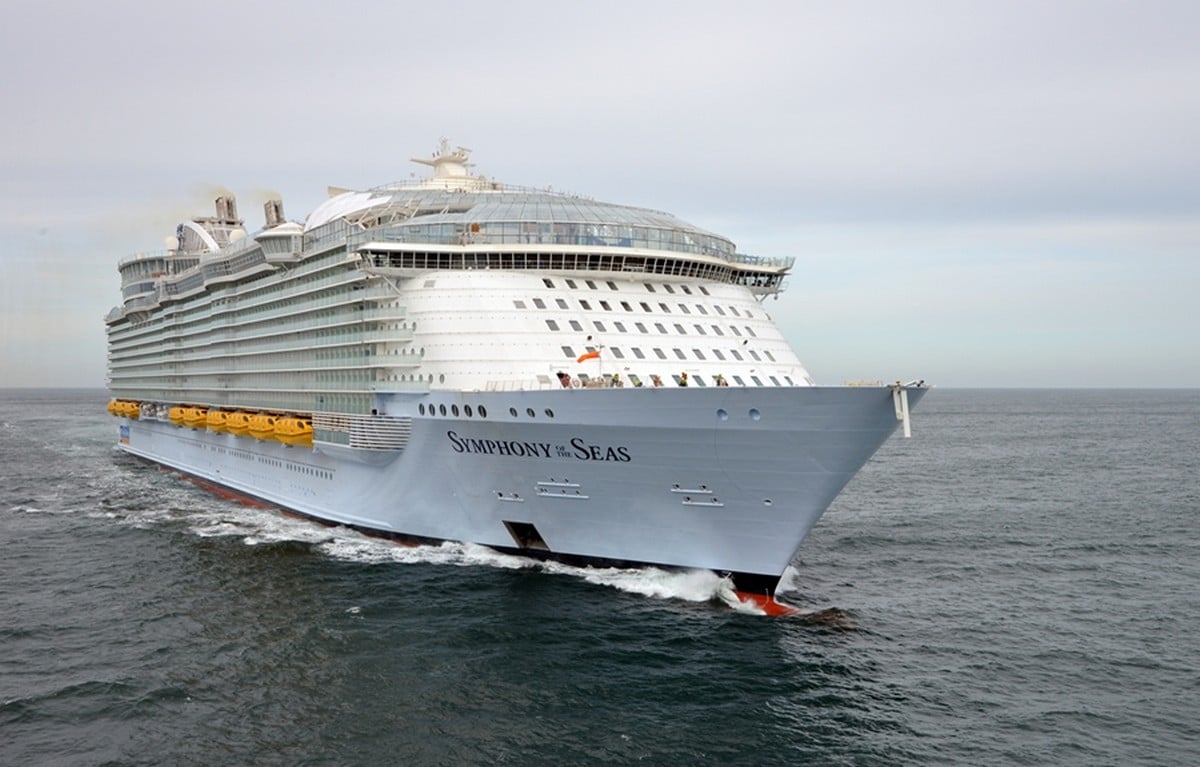
Known as the "Healthy Sail Panel", this group is comprised of top experts in public health, infectious disease, biosecurity, hospitality and maritime operations in response to the global COVID-19 pandemic.
The panel is tasked with collaboratively developing recommendations for cruise lines to advance their public health response to COVID-19, improve safety, and achieve readiness for the safe resumption of operations.
Serving at the head of the new panel will be Governor Mike Leavitt, former Secretary of the U.S. Department Health and Human Services (HHS), and Dr. Scott Gottlieb, former commissioner of the U.S. Food and Drug Administration (FDA).
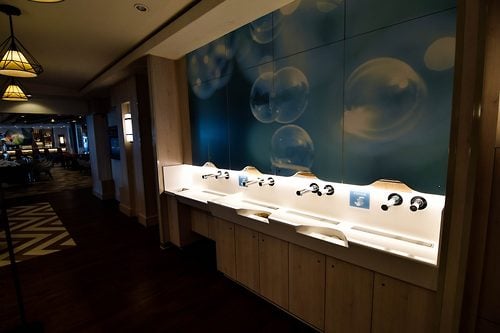
The Healthy Sail Panel has been working for almost a month, and should have its initial recommendations by the end of August.
Both Norwegian and Royal Caribbean have pledged that their work will be “open source,” and could be freely adopted by any company or industry that would benefit from the group’s scientific and medical insights.
“This unprecedented disease requires us to develop unprecedented standards in health and safety,” said Richard D. Fain, chairman and CEO, Royal Caribbean Group. “Bringing aboard these respected experts to guide us forward demonstrates our commitment to
protecting our guests, our crews and the communities we visit.”
“We compete for the vacationing consumer’s business every day, but we never compete on health and safety standards,” said Frank Del Rio, president and CEO, Norwegian Cruise Line Holdings Ltd. “While the cruise industry has always had rigorous health standards, the unique challenges posed by COVID-19 provide an opportunity to raise the bar even higher.”
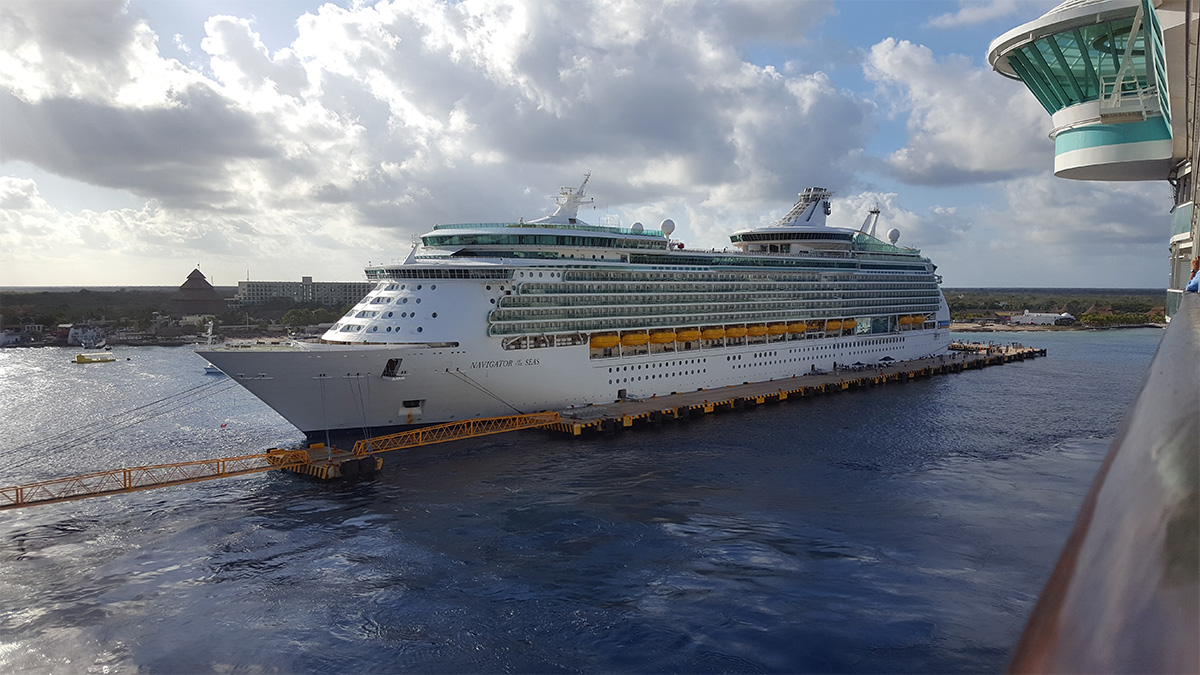
Fain and Del Rio said they initiated the panel to assure the plans they will submit to the U.S. Centers for Disease Control and Prevention (CDC) and other regulators apply the best available public health, science and engineering insights. The work of the panel will be shared with the entire industry and regulators.
Meet the panel
The panel’s members are globally recognized experts from various disciplines, including public health, infectious disease, biosecurity, hospitality and maritime operations.

Governor Mike Leavitt
Mike Leavitt was a three-term Governor of Utah and served as Administrator of the EPA and Secretary of HHS under President George W. Bush. He is the founder of Leavitt Partners, a firm that provides investment support, data and analytics, member-based alliances, and direct services to clients to support decision-making strategies in the value economy.
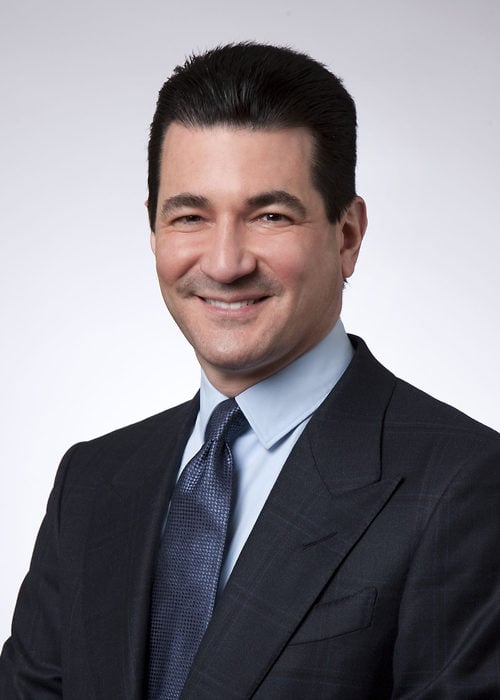
Dr. Scott Gottlieb
Dr. Scott Gottlieb was the Commissioner of the FDA from 2017-2019 and served as the agency’s Deputy Commissioner for Medical and Scientific Affairs from 2005- 2007. He is a physician trained in internal medicine and is currently a resident fellow at the American Enterprise Institute.
Helene Gayle, M.D., M.P.H.
Dr. Gayle is CEO of the Chicago Community Trust, one of the nation’s leading community foundations. Prior to this role, for almost a decade, she was president and CEO of CARE, a leading international humanitarian organization. An expert on global development, humanitarian and health issues, Dr. Gayle spent 20 years with the CDC, working primarily on HIV/AIDS. She worked at the Bill & Melinda Gates Foundation, directing programs on HIV/AIDS and other global health issues. She also launched the McKinsey Social Initiative (now McKinsey.org), a nonprofit that builds partnerships for social impact. Dr. Gayle serves on public company and nonprofit boards, including The Coca-Cola Company, Colgate-Palmolive Company, the Brookings Institution, the Center for Strategic and International Studies, New America, the ONE Campaign, the Federal Reserve Bank of Chicago and the Economic Club of Chicago. She is a member of the Council on Foreign Relations, the American Public Health Association, the National Academy of Medicine, the National Medical Association and the American Academy of Pediatrics.
Julie Gerberding, M.D., M.P.H.
Dr. Julie L. Gerberding is Executive Vice President and Chief Patient Officer for Merck, leading all aspects of strategic communications, global public policy, population health and patient engagement. A former head of the CDC and a world-renowned public health expert, Dr. Gerberding is deeply committed to achieving sustainable global health impact and tackling some of the most challenging health priorities of our time. This includes addressing critical issues such as affordable access to important therapies, advocating for health policies that promote and sustain innovation of new medicines and vaccines, and improving maternal mortality through the Merck for Mothers program — a public-private partnership helping to meet the United Nations’ Sustainable Development Goal to reduce maternal mortality. Prior to joining Merck, Dr. Gerberding served as the Director of the CDC from 2002-2009 and was the first female to hold that position. While at the agency, she led more than 40 emergency responses against crises such as anthrax, SARS, bird flu, foodborne outbreaks and natural disasters. Previously, Dr. Gerberding was a tenured faculty member in Infectious Diseases at the University of California at San Francisco (UCSF). She continues as an Adjunct Associate Clinical Professor of Medicine at UCSF.
Steven Hinrichs, M.D.
Dr. Steven Hinrichs is Professor and Chair in the Department of Pathology and Microbiology at the University of Nebraska Medical Center in Omaha and the Director of the Nebraska Public Health Laboratory (NPHL), and Director of the University of Nebraska Center for Biosecurity. In his position as laboratory director, he has been responsible for the development of a statewide program for the rapid identification of biological agents of mass destruction. He is principal investigator of multiple national awards from the Association of Public Health Laboratories (APHL) and the CDC and the U.S. Department of Defense for the development of an outreach program to extend training and expertise in the early recognition of biological warfare agents. Dr. Hinrichs received his MD from the University of North Dakota and is board certified in Anatomical and Clinical Pathology. His research laboratory focuses on molecular diagnostics and the role of viruses in cancer. Dr. Hinrichs has published over 130 papers in basic science and medical journals.
Michael Osterholm, M.D., Ph.D.
Michael Osterholm is one of the nation’s foremost experts in public health, infectious disease and biosecurity. As the director of the Center for Infectious Disease Research and Policy at the University of Minnesota, he is an international leader on the world’s preparedness for pandemics. He has led numerous investigations into internationally important disease outbreaks, including foodborne diseases, hepatitis B in healthcare settings and HIV infection in healthcare workers, and he is a frequent consultant to the World Health Organization, the National Institutes of Health, the FDA, the U.S. Department of Defense and the CDC. From 2001 to 2005, Dr. Osterholm served as a special advisor to the Secretary of HHS on issues related to bioterrorism and public health preparedness. From June 2018 through May 2019, he served as a Science Envoy for Health Security on behalf of the U.S. Department of State. He has also been appointed to the National Science Advisory Board on Biosecurity and the World Economic Forum’s Working Group on Pandemics, among other prominent advisory positions.
Stephen Ostroff, M.D.
Dr. Ostroff brings years of experience in public health, having served at high-level positions at the FDA and the CDC. He was the Acting Commissioner of the FDA from 2015-2016, and before that served as the FDA’s chief scientist. Ostroff joined the FDA in 2013 as chief medical officer in the Center for Food Safety and Applied Nutrition and senior public health advisor to the FDA’s Office of Foods and Veterinary Medicine. Prior to that he served as deputy director of the National Center for Infectious Diseases at the CDC, where he was also acting director of the CDC’s Select Agent Program. While at the CDC, he focused on emerging infectious diseases, food safety and coordination of complex outbreak response. He retired from the Commissioned Corps of the U.S. Public Health Service at the rank of Rear Admiral (Assistant Surgeon General). Ostroff was also the director of the Bureau of Epidemiology and acting physician general for the Commonwealth of Pennsylvania and has consulted internationally on public health projects in South Asia and Latin America. Ostroff graduated from the University of Pennsylvania School of Medicine in 1981 and completed residencies in internal medicine at the University of Colorado Health Sciences Center and preventive medicine at the CDC.
William Rutala, Ph.D., M.S., M.P.H.
Dr. Rutala has experience medically managing a variety of diseases and extensive experience studying epidemiology and virology, particularly managing outbreaks and emerging pathogens. Dr. Rutala’s research interests are the etiology and prevention of healthcare-associated infections with a special focus on disinfection and sterilization of reusable medical and surgical devices (e.g., endoscopes, surgical instruments). Other areas of active research include contribution of the hospital environment to disease transmission, hand hygiene, preventing transmission of infectious agents, including multiply-drug resistant organisms, prevention of healthcare-associated Creutzfeldt-Jakob Disease, investigation of healthcare-associated outbreaks, and new and emerging pathogens in healthcare.
Kate Walsh, Ph.D.
Kate Walsh is the Dean at the School of Hotel Administration at Cornell University and E.M. Statler Professor. A professor of management, she is a leader in education for the global hospitality industry; and a renowned expert in organizational service design, leadership and career development, as well as the impact of strategic human capital investments. In addition to authoring and contributing to books, Dr. Walsh’s articles have appeared in numerous research outlets. She has over 20 years of academic experience, including in her current role as dean. In addition, Dean Walsh holds extensive industry knowledge from serving as the former director of training and development for Nikko Hotels International, corporate training manager for the former Bristol Hotels, and senior auditor for Loews Corporation. She is also a former New York State Certified Public Accountant. Since the beginning of her administration as dean, Dean Walsh has focused on positioning the school for the future of education. This includes undertaking a comprehensive renewal of the graduate and undergraduate curricula, developing the school's online global presence, identifying international partners for master-level program development, and providing thought leadership for the hospitality industry, most notably through the creation of industry research partnerships for faculty, fostering new initiatives through the school's six centers and institutes, and providing faculty-developed resources to guide the industry. Dr. Walsh received her Ph.D. from the Carroll School of Management at Boston College and her M.P.S. degree from Cornell’s School of Hotel Administration.
Captain Patrik Dahlgren
Captain Patrik Dahlgren is the Senior Vice President of Global Marine Operations and Fleet Optimization for all Royal Caribbean Group global brands. Dahlgren’s seagoing experiences started as a bridge officer aboard tugboats, yachts and an array of cargo vessels and ferries. He rose through the ranks with over 15 years onboard Royal Caribbean International cruise ships, with his last seagoing command as Master of Oasis of the Seas and Quantum of the Seas. He was a lead contributor to the Quantum of the Seas development and received the esteemed RINA (Royal Institute of Naval Architects) award for its innovation and contributions to maritime safety.
Robin Lindsay
Robin Lindsay is the Executive Vice President of Vessel Operations for Norwegian Cruise Line Holdings Ltd. Lindsay was appointed to this position in January 2015. In this role, Lindsay is responsible for Marine & Technical Operations, Hotel Operations, Entertainment, Product Development, Port & Destination Services, Fleet Personnel, Out Islands and New Build & Ship Refurbishment for all three of the company's brands – Norwegian Cruise Line, Oceania Cruises and Regent Seven Seas Cruises.
Prior to joining Norwegian Cruise Line Holdings Ltd., Lindsay served in a similar capacity as Executive Vice President of Vessel Operations at Prestige Cruise Holdings, the parent company of Oceania Cruises and Regent Seven Seas Cruises. Lindsay's history with the company goes back to the inception of Oceania Cruises in 2003, where he joined as Senior Vice President, Hotel Operations and Vessel Operations. Lindsay earned his B.S. degree from Louisiana Tech University.
And more
In addition, several experts will also serve as senior advisors to the panel, including Dr. Caitlin Rivers, who is a faculty member and epidemiologist at the Johns Hopkins Bloomberg School of Public Health and an expert in emerging infectious disease epidemiology and outbreak science, and Dr. Phyllis Kozarsky, who is a professor emerita of medicine in the Division of Infectious Diseases at Emory University School of Medicine and an expert in pre- travel health advice and education, global health, and the epidemiology of travel-related infections and infectious diseases. Dr. Kozarsky serves as an expert consultant to the Division of Global Migration and Quarantine in travelers’ health with the CDC.
